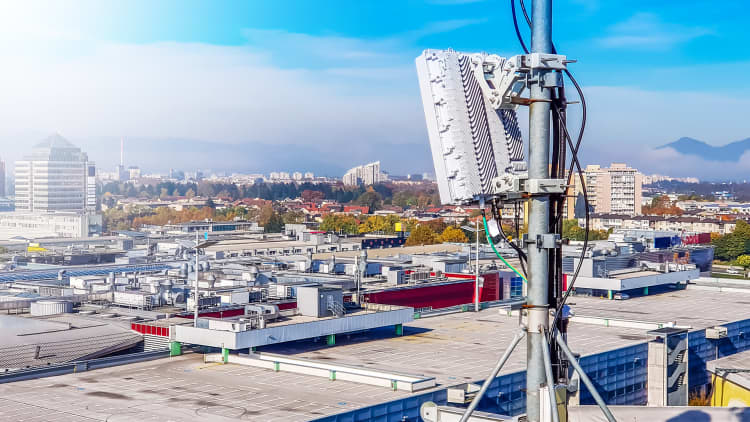Swedish telecoms giant Ericsson predicted that superfast 5G internet will cover up to 65% of the world's population by the end of 2025.
In a report published Monday, the company — which is just one supplier of 5G infrastructure and equipment — said 5G would handle 45% of global mobile data traffic within six years.
The number of 5G mobile contracts around the world will top 2.6 billion by the mid-2020s, Ericsson said, with consumers expected to increase their average monthly consumption of mobile data from 7.2 GB to 24 GB.
China switched on its 5G networks ahead of schedule earlier this month, with China Telecom, China Unicom and China Mobile all offering 5G mobile plans. The country's government is already starting development of a 6G network.
In its report on Monday, Ericsson estimated that more than 13 million customers in China will have signed up to 5G subscriptions by the end of 2019.

Meanwhile, in the U.S., Verizon activated its 5G mobile network in Chicago and Minneapolis in April, and has since rolled the tech out to a number of additional cities.
In Britain, telecoms firms Vodafone and EE are trialing 5G technology in several towns and cities, as well as at London's Gatwick Airport.
Ericsson's report speculated that the most rapid 5G uptake over the coming years would be in North America, where 74% of mobile contracts were forecast to be 5G by the end of 2025. In comparison, 56% of mobile contracts signed in northeast Asia by the end of 2025 would be 5G, while 55% of subscriptions in Europe would be 5G, the company said.
"In 2020, 5G-compatible devices will enter the volume market, which will scale up 5G adoption," Fredrik Jejdling, Ericsson's executive vice president and head of networks, said in a press release Monday. "The question is no longer if but how quickly we can convert use cases into relevant applications for consumers and enterprises."
Political hurdles
Superfast 5G mobile internet is expected to revolutionize the digital economy by enabling new technologies such as self-driving cars and the internet of things — but providers of the technology face significant political obstacles.
Chinese telecoms giant Huawei, which provides mobile infrastructure equipment for a number of carriers around the world, has been placed on a blacklist by U.S. authorities which restricts it from trading with American firms without special licenses from the government.
Citing national security concerns, the U.S. has been pressuring its allies to bar Huawei from their 5G networks, claiming the company's inclusion could enable Chinese espionage. Huawei has repeatedly denied those claims, but some countries, including Australia and New Zealand, have prohibited the company from participating in their networks. Under Chinese law, organizations can be forced to hand over data to the state if requested to do so.
Despite the pressure, Huawei said in October that it had signed more than 60 commercial 5G contracts with "leading global carriers."
Ericsson itself has secured 76 commercial 5G contracts to date with carriers including Sprint, Verizon, T-Mobile and Vodafone.
Meanwhile, Nokia announced last week that it had secured its 50th 5G deal with New Zealand carrier Spark.

